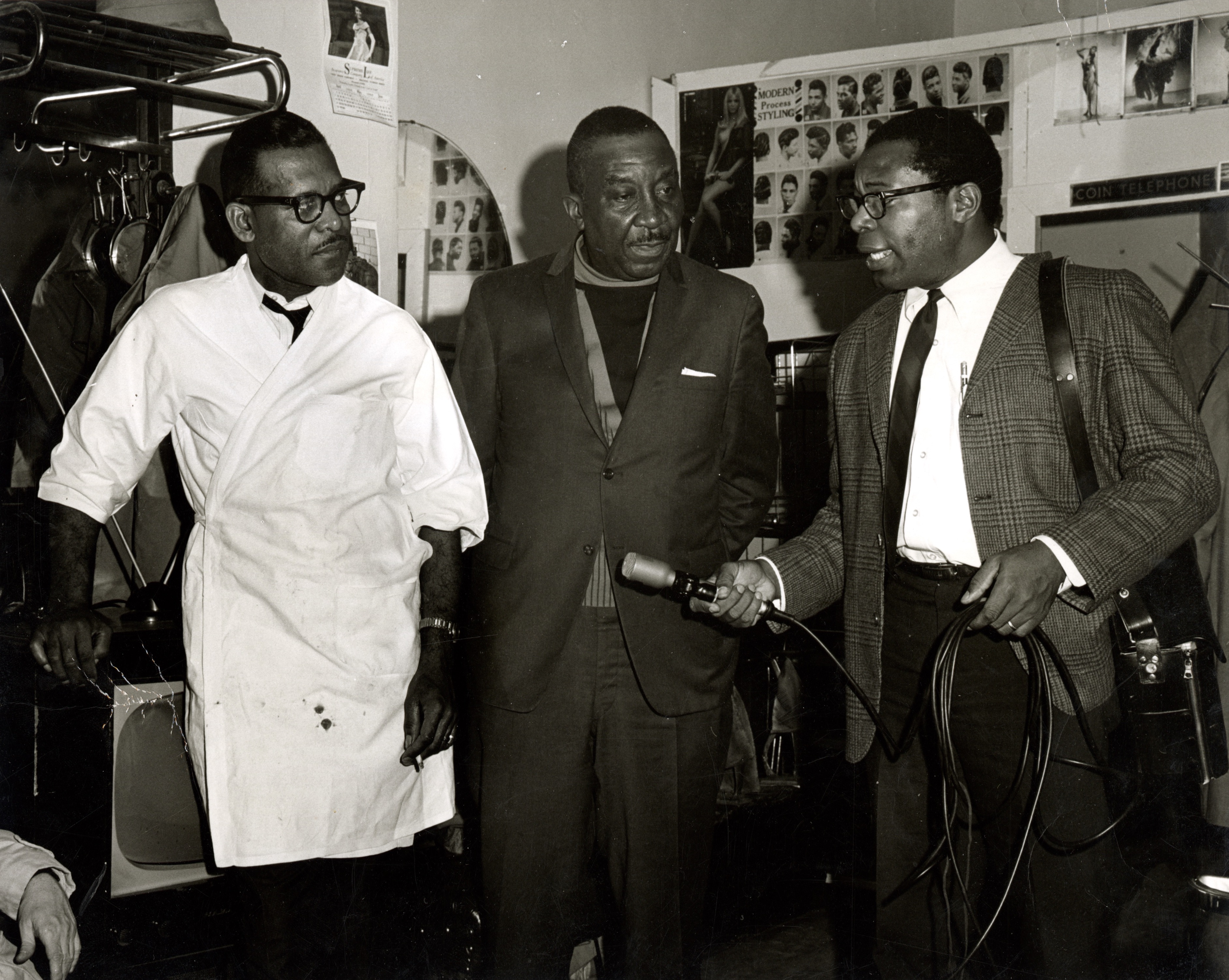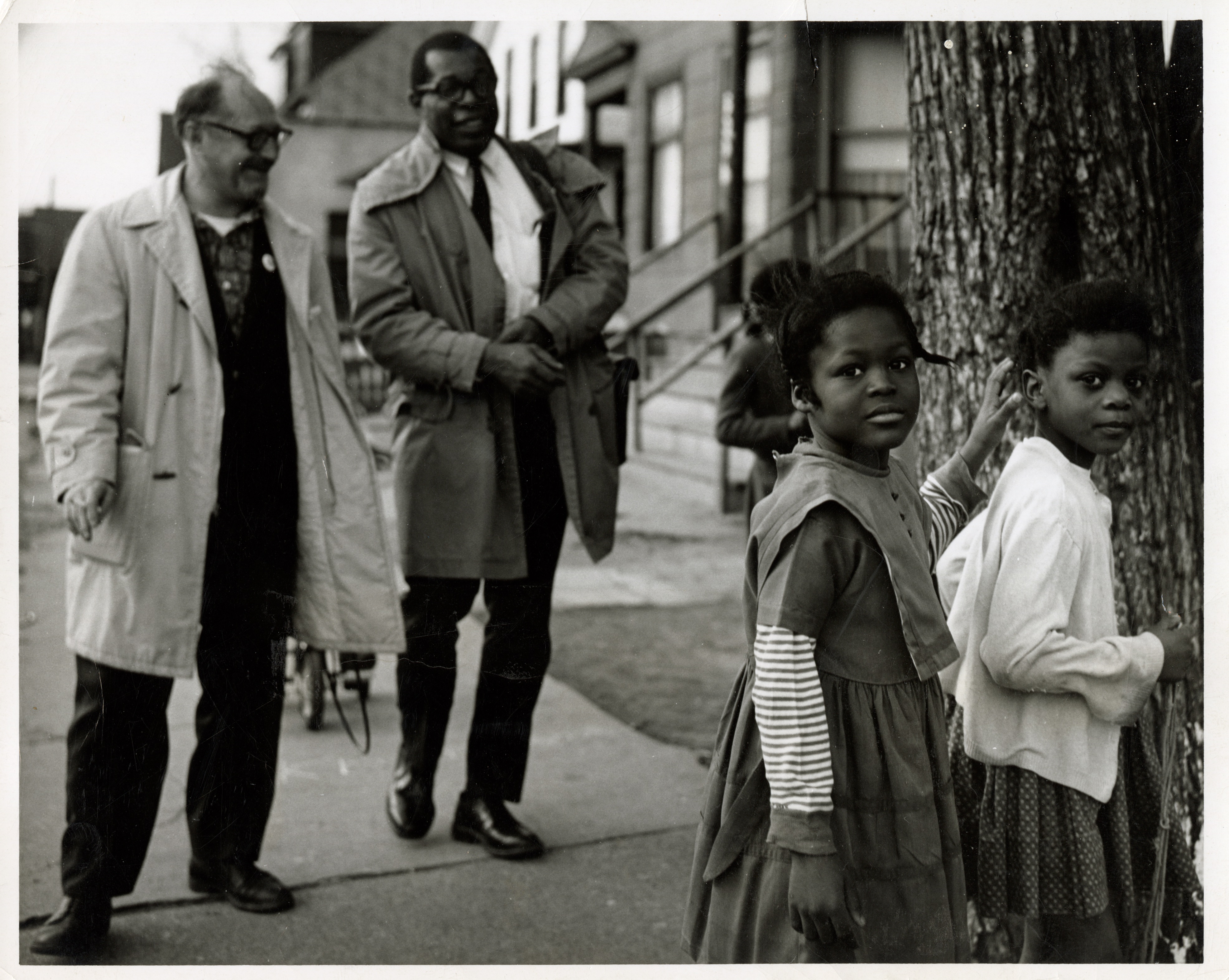by Matt St. John

The Hartford Smith, Jr. collection provides an audio record of Detroit in the 1960s through Seeds of Discontent, the 1968 radio series Smith created, wrote, and produced. Over 26 episodes, the program addresses contemporary topics including race relations, civil rights, poverty, youth, and crime. The collection at WCFTR features the full series and many of the raw interviews recorded during its production, as well as correspondence, scripts, reports, and photographs related to the series and Smith’s career as an educator and social worker.
We first discovered Seeds of Discontent through an educational radio project called Unlocking the Airwaves that brings together the paper and audio archives of the National Association of Educational Broadcasters. The radio programs on Unlocking the Airwaves, with shows primarily from the 1950s and 1960s, include immense variety. For example, historical reenactments and in-depth documentary programs might surprise those who associate educational radio with droning lectures. Seeds of Discontent is one of the series that drops the lecture approach in favor of interviews with a wide range of guests, always framed through the pressing problems of the city and the country.

As a social worker and educator in Detroit, Smith became very concerned with mass media’s coverage of social problems in the United States. He was particularly troubled by media coverage of riots in American cities that did not address the basic issues that affected people’s lives and led to unrest, like policing, housing, employment, and education. Seeds of Discontent offers an alternative, by speaking directly to the people affected by inequalities and injustices in the United States. Many of the episodes focus on “individuals who have some gripe with the present order of things,” including college student activists, families living in poverty, teachers frustrated by the failings of the education system, middle-class workers, entertainers, and incarcerated youth. In almost every context, Smith calls attention to the perspectives of Black Detroit residents – an intentional response to media that typically ignores them.

The online availability of such a fascinating series is notable enough, but we’re lucky to have even more material in the full WCFTR collection that tells the story of its production. When Hartford Smith, Jr.’s daughter Chana found Seeds of Discontent on Unlocking the Airwaves, she reached out to the project team and shared that Smith still had the original tapes and papers from the series. Our colleague Stephanie Sapienza, one of the project leads at Unlocking the Airwaves, helped coordinate the donation of the collection to the WCFTR.
Expanding access to the collection was a priority for the Smith family and for us, so we began processing the materials and finding ways to highlight this exciting new collection. We digitized the tapes and the papers, and the digital copies are available through our Internet Archive page. Another way that we are sharing the collection is through an Omeka website with exhibits by graduate students that contextualize the series and the related documents. The exhibits on this site help introduce Seeds of Discontent and Smith’s full archival collection by focusing on his background and the social and broadcasting contexts of the time, with a curated sample of items.

With its consistent attention to the perspectives and problems of Black people in Detroit and the creator’s identity as a Black educator, Seeds of Discontent stands out as a unique example of educational radio from the 1960s. The online availability of the series is unusual and exciting for radio from the period, and the access to the accompanying raw interviews and paper materials is even more unlikely. We hope that researchers, students, and others interested in the topics and context of Seeds of Discontent will enjoy learning about Smith and his work.
Special thanks to Hartford Smith, Jr. and his family, Stephanie Sapienza, Stephen Jarchow, and Lauren Wilks.
